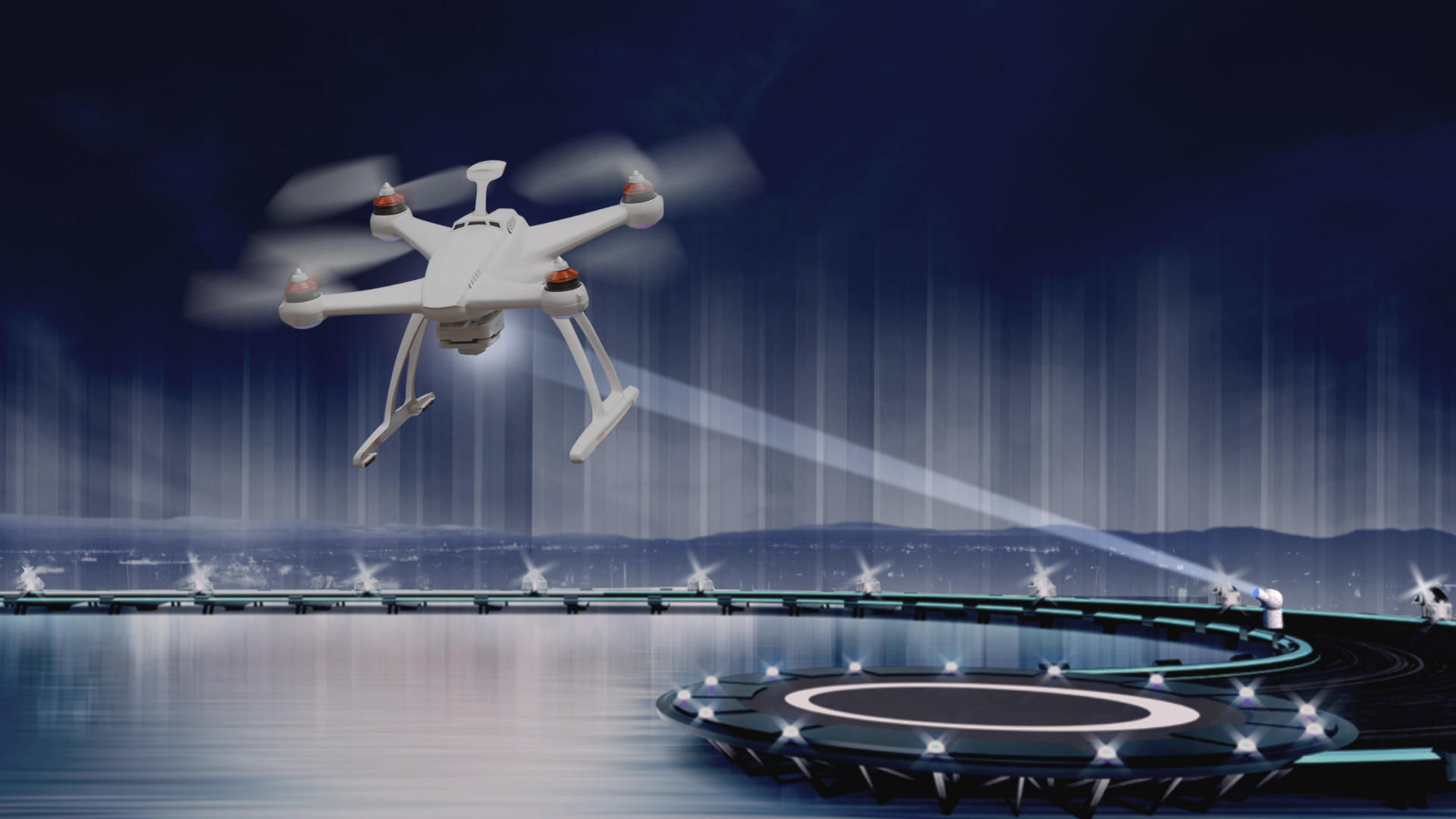
Diamonds show promise in extending drone flight times

Diamonds may hold the secret to keeping drones in flight indefinitely. Scientists at LakeDiamond, a spin-off company of the Swiss Federal Institute of Technology Lausanne (EPFL), have developed a safe laser beam system that uses small lab-grown diamonds to power small drones instead of relying entirely on a rechargeable battery.
Despite the growing sophistication and versatility of drones, they continue to suffer from one major weakness: their battery life. This is particularly true for propeller drones that are used to gather information, often in remote areas. These drones can currently only fly for 15 minutes at a time before they burn through their batteries.
Labs in various countries have been exploring the use of diamonds for powering drones without weighing down the drones or posing risks to human health. On Wednesday, EPFL announced that LakeDiamondExternal link is the first to demonstrate the feasibility of using a high-powered laser and tracking system to extend the flying time of drones, drawing on the photovoltaic power of diamonds of only a few millimetres in diameter.
Their new system produces a laser beam that can shine directly on the photovoltaic cells on the drone’s surface. Thanks to the diamond, the beam can travel much farther without losing strength while not damaging human skin or eyes.
The LakeDiamond system transforms the light rays emitted by a low-power diode into a high-quality laser beam. The light produced by the diode is directed at reflective material made up of a diamond that acts as the optical component. The system delivers more than 30 watts in its base configuration, which is enough to power a small, propeller drone.
It took LakeDiamond ten years to develop the lab-grown diamonds for this purpose and the nano-etching process key to the technology. A spokesperson for LakeDiamond said that they expect a prototype of the system to be available in early 2019 and for commercialisation in 2020.
While this new laser system means that drones will not need to return to a source for recharging, LakeDiamond believes that a back-up battery may still be necessary. One issue that requires further development before commercialisation is what happens when a drone flies behind an obstacle and is cut off from the laser energy source.
The Swiss Space Office is currently supporting a project to apply this technology to transmit power and data to satellites.

More
Digital bank offers clients unique access to diamond ICO

In compliance with the JTI standards
More: SWI swissinfo.ch certified by the Journalism Trust Initiative






























You can find an overview of ongoing debates with our journalists here . Please join us!
If you want to start a conversation about a topic raised in this article or want to report factual errors, email us at english@swissinfo.ch.